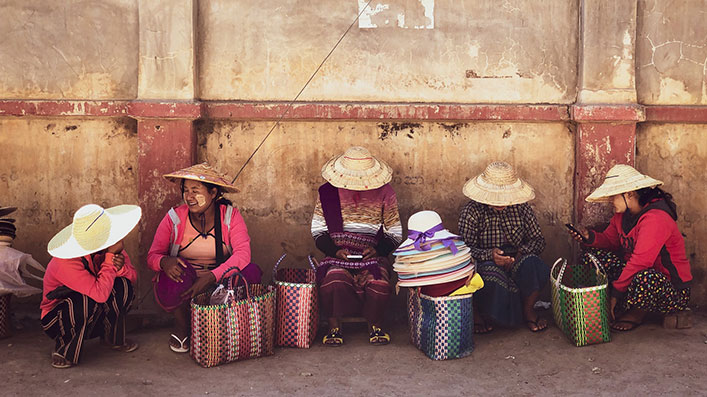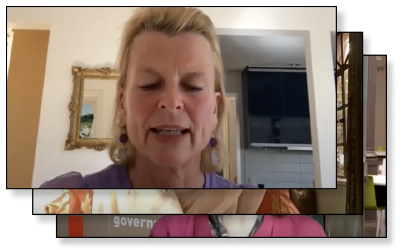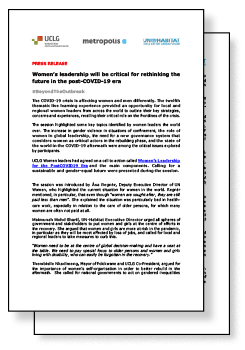Women’s Leadership
Under-Secretary-General of the United Nations and Executive Director of UN-Habitat
Mayor of Polokwane and UCLG Co-President
UCLG Secretary General

Context
The already precarious livelihoods of women around the world are now worsening. The current pandemic has widened the gender gap even further, bringing to the surface the inequalities and the vulnerability suffered by women in the private and public spheres. According to the World Health Organization, the risk of domestic violence for women is increasing, often exacerbated by precarious housing and confinement conditions. Data shows that the burden placed on women to look after family members and execute household chores has also increased during the crisis. And yet, women represent the bulk of the often underpaid and undervalued health and care systems workforce, not to mention they are at the frontlines of other basic services, facing the unprecedented challenges head-on. Women are playing a critical role in neighborhoods’ cohesion and solidarity efforts, keeping us together and safe, while still facing gender-based violence, oppression, and discrimination.
60%
Some countries have reported an increase of up to 60% in emergency calls related to domestic violence during the pandemic.
70%
In developing economies, 70% of female employment is in the informal sector, making them particularly vulnerable to the economic crisis the pandemic has triggered.
Challenges

There is a consensus that local government responses should focus not only on immediately curbing the effects of the pandemic on gender equality, but rather on a system change approach to address pre-existing issues. The most pressing challenges lie in including women in the formal labor market, which includes providing affordable and effective child care solutions; addressing gender violence; and guaranteeing the safety of workers in the health care sector, given that women provide a large portion of health services.
Needs

There is an urgent need to promote a new governance model that includes women in the decision-making table across all sectors of society. Women should be involved in shaping the policies to respond to the crisis and empowered to make them last beyond the outbreak. Innovative solutions to support with child or elderly care could be provided from a city level, but active female participation in leadership roles is necessary for this to happen.
Responses

Learn how Nizhnekamsk is carrying out non-discriminatory employment policies and service provision
Bogotá proposes a more solidary and empathetic governance model to deal with this pandemic and with crises to come
Responses

Learn how Nizhnekamsk is carrying out nondiscriminatory employment policies and service provision
Here is Barcelona’s approach to a more human-centric, inclusive social-economic model as a response to the crisis
Bogotá proposes a more solidary and empathetic governance model to deal with this pandemic and with crises to come
Key Takeaways
- Female leadership is proving to be highly effective in the response to the crisis on the national and local levels.
- Women must be involved in the response to the crisis to make sure that solutions are inclusive, gender-sensitive, and sustainable.
- Gender equality in the labor force is an urgent need to be addressed and should be done via policy that ensures equal pay and opportunities but also via guaranteeing childcare support, access to education and technology literacy, particularly to women in vulnerable conditions.
- It is paramount to promote a safe environment for health care providers – most of them, women – during and beyond the outbreak.
- UCLG Women leaders have agreed on a call to action called Women’s Leadership for the Post-COVID-19 Era, stressing the urgent changes that are necessary to achieve Generation Equality.
Beyond
The Outbreak

The pandemic has unexpectedly put a spotlight on female leadership values. National and local female leaders are being praised for their transparency, direct communication on the need to develop inter-governmental dialogues, and for an inclusive approach to vulnerable communities. As these values have proven essential in the current scenario they will hopefully prevail in the aftermath of the crisis.

Building
Back Better
The UCLG Decalogue

Resources

For further information on the topic of Women’s Leadership and its impact on cities and regions, please refer to the related resources included below.
- UN-Women: Gender equality matters in COVID-19 response
- Cities Alliance: How COVID-19 can unveil women’s potential and needs in cities
- CEMR and Urbact: Gender Equal Cities under COVID 19
- UCLG Manifesto on the Future of Equality: Beyond Beijing+25




